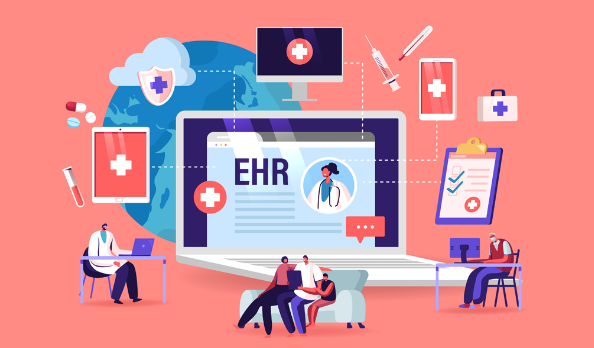
Introduction
Electronic Health Records (EHRs) have become a cornerstone of modern healthcare, promising to revolutionize patient care, enhance efficiency, and improve healthcare outcomes. This comprehensive guide explores the numerous benefits of EHRs, discussing how they are transforming the medical landscape and shaping the future of healthcare.
1. The Transition to Electronic Health Records
We begin by highlighting the transition from paper-based health records to electronic health records, emphasizing the need for digital solutions in modern healthcare.
2. Understanding Electronic Health Records
EHRs are comprehensive digital records of a patient’s medical history. We will provide a thorough understanding of EHRs, explaining how they contain patient information, medical history, diagnoses, medications, and treatment plans.
3. Improved Accessibility and Efficiency
EHRs improve accessibility and efficiency. We will discuss how EHRs enable healthcare providers to access patient information instantly, reducing the time and effort required to retrieve paper records.
4. Enhanced Patient Care
EHRs enhance patient care. We will explore how EHRs improve clinical decision-making by providing up-to-date patient data, reducing medication errors, and enabling coordinated care among healthcare providers.
5. Interoperability and Data Sharing
EHRs facilitate data sharing. We will delve into how interoperability standards enable healthcare providers to securely share patient information, leading to improved care coordination and better patient outcomes.
6. Efficiency and Cost Reduction
EHRs streamline healthcare operations. We will explain how EHRs reduce administrative tasks, cut down on paperwork, and lower operational costs, ultimately making healthcare more affordable for both providers and patients.
7. Remote Access and Telehealth Integration
EHRs support remote access and telehealth. We will discuss how EHRs play a crucial role in telemedicine and remote consultations, ensuring that healthcare can reach patients wherever they are.
8. Data Analytics and Population Health
EHRs provide data for analytics. We will explore how EHRs generate valuable data for population health management, research, and public health initiatives, helping healthcare providers address health trends and epidemics.
9. Patient Engagement and Empowerment
EHRs empower patients. We will discuss how patients can access their own EHRs, review their health data, and actively engage in their care, fostering a sense of ownership and accountability for their health.
10. The Future of Electronic Health Records
We will conclude by discussing the future of EHRs, exploring emerging trends and their role in shaping the healthcare landscape, including the potential for artificial intelligence and the integration of wearable health devices.
Conclusion
Electronic Health Records (EHRs) are transforming healthcare, providing a comprehensive digital solution for medical records that enhances patient care, reduces costs, and fosters patient engagement. Whether you are a healthcare provider, a patient, or a healthcare stakeholder, understanding the benefits of EHRs is crucial for embracing these innovations and their potential to improve healthcare delivery, enhance patient care, and shape the future of healthcare. As EHR technology continues to evolve, it holds the promise of transforming healthcare for the better, ensuring that patient data is readily accessible and enabling more efficient and effective healthcare delivery.